
Front_Office_Operations
.pdf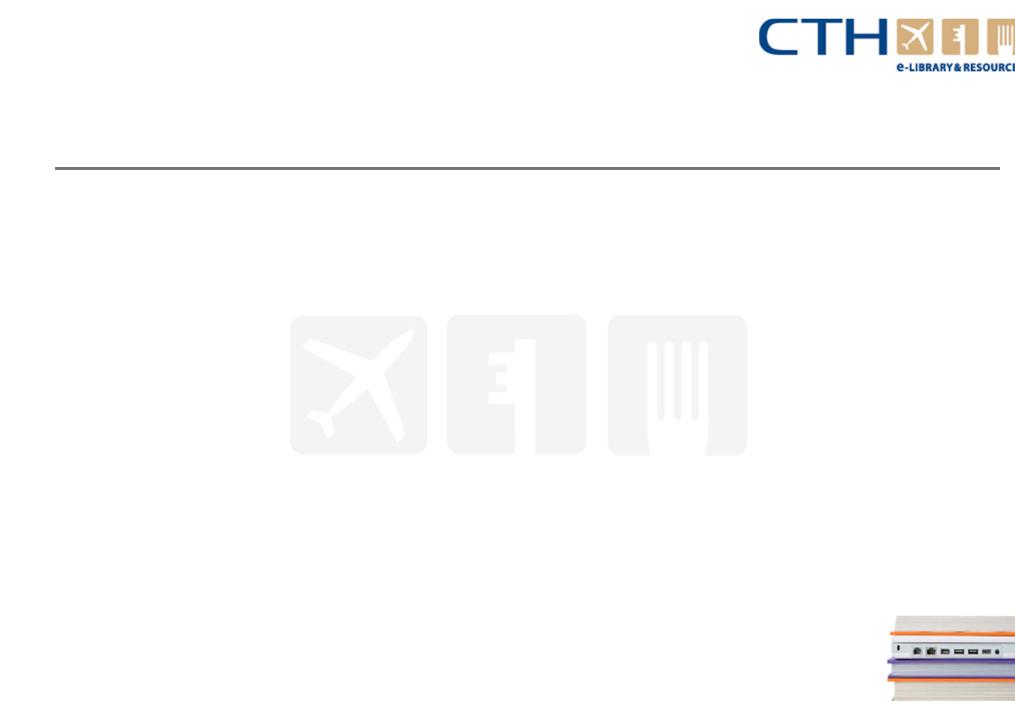
Chapter 4 – Check-out procedures
Payment procedures
3.3 Cheques continued…
Advantages of accepting cheques |
Disadvantages of accepting cheques |
Better security than cash: less worth |
Security: can 'bounce' (returnee for lack of funds), or |
stealing, as funds can only be obtained by the |
errors or forgeries can result in the ban refusing to |
designated payee |
honour a cheque |
Less handling than cash for large amounts |
Liquidity: takes time to clear |
Cheaper than cash to operate with |
Worth: handling charge imposed by banks |
www.cthresources.com |
Page 241 |
|
www.cthawards.com |
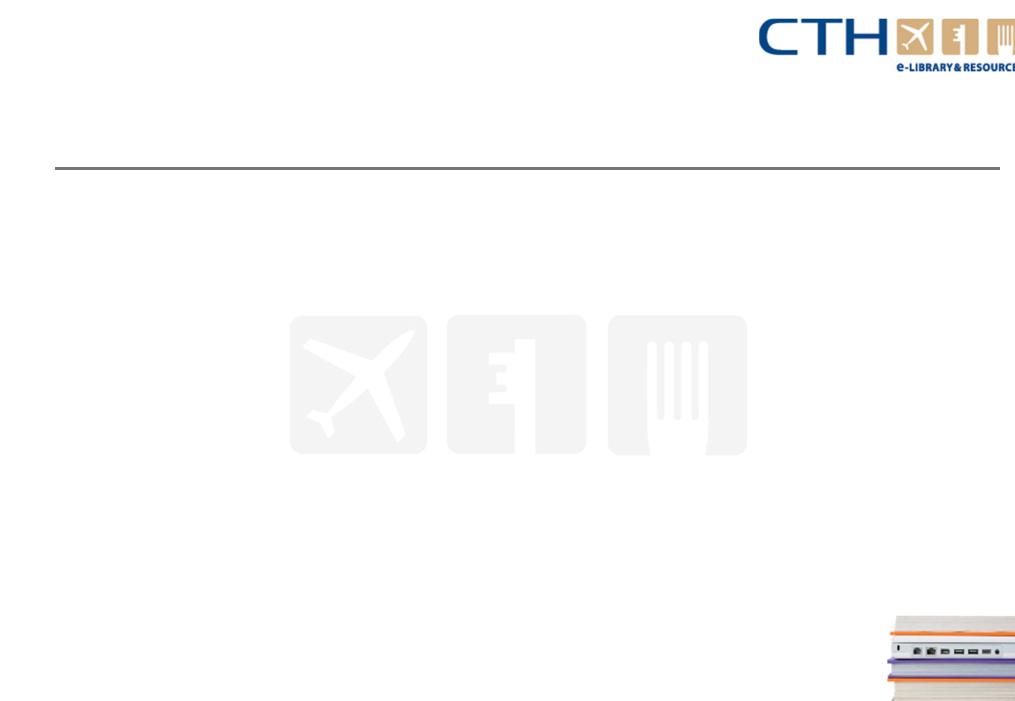
Chapter 4 – Check-out procedures
Payment procedures
3.4 Traveller's cheques
Traveller's cheques, with their system of signature and counter-signature, were designee to provide travellers with a secure and replaceable document that a wide range of organisations would be willing to accept in exchange for cash, goods and services, A hotel with significant international trade will often be given traveller's cheques in payment and/or to exchange for cash in the local currency, This will involve the receptionist in foreign exchange rate calculations, as with foreign currency payments.
The cheques are issued in fixed denominations by major banks, travel agents and building societies in predetermined multiples of various currencies. (American Express, currently issues traveller's cheques in nine different currencies: US dollars, Canadian dollars, pounds sterling, Swiss Francs, Euros, etc).
The traveller's specimen signature will be put on each cheque at the time of the purchase: a countersignature is required when the cheque is used. When accepting a payment by traveller's cheque, the cashier must watch the guest sign and date the cheque, and verify that the signature matches the one already on the cheque. It is also common to request some proof of identity (such as a passport or driver's licence), for verification purposes. Banks also issue lists of invalid (lost or stolen) traveller's cheques, and the cashier should check the serial number of any presented traveller's cheque
against this list.
www.cthresources.com |
Page 242 |
|
www.cthawards.com |
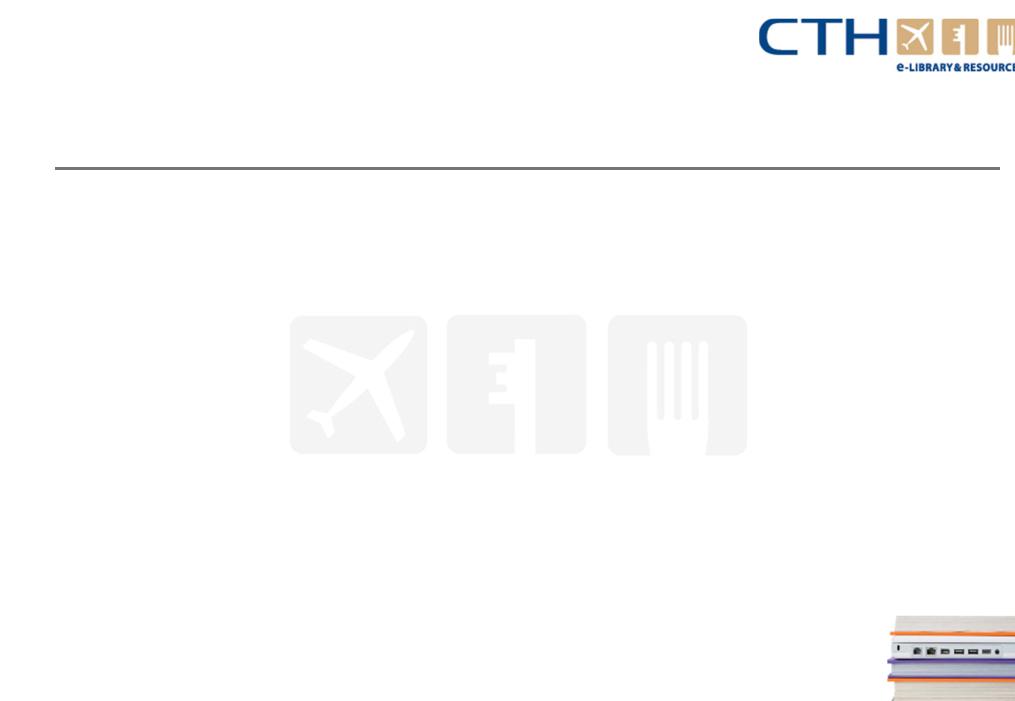
Chapter 4 – Check-out procedures
Payment procedures
3.4 Traveller's cheques
The hotel will typically use the normal bank clearing system to receive funds from the issuer of the travellers' cheques, or the issuer's paying agent for a particular currency.
Advantages of accepting TCs |
Disadvantages of accepting TCs |
High security: reduced risk of theft due to no |
Liquidity: take time to 'clear' before funds are |
transferability |
available |
Customer service: convenient and safe for travellers, |
Worth: banks charge a small commission for |
with better exchange rate and no expiry date |
exchanging them |
www.cthresources.com |
Page 243 |
|
www.cthawards.com |

Chapter 4 – Check-out procedures
Payment procedures
3.5 Credit cards
Is a popular method of payment for any goods and services: most hotels will accept at least one or two major credit cards (MasterCard or Visa, American Express or Diners Club). Credit cards are convenient for travellers: they allow payment to be made without the need for insecure cash or bulky cheque books - and provide an opportunity to pay on credit, as well as to receive loyalty benefits such as Air Miles.
Credit card companies levy commission charges (usually between 2% to 5% of the transaction amount), making them comparatively expensive (low worth) for the hotel, and this will be one reason for the management to decide not to accept particular cards. However, business travellers, in particular, like to pay by credit card (because it is a company card, or because they can get their expenses reimbursed before they actually have to pay the debt). A hotel with a high proportion of business trade may have
to accept a range of cards - although it may also pass on the commission charge to the guest, in return for the service.
www.cthresources.com |
Page 244 |
|
www.cthawards.com |
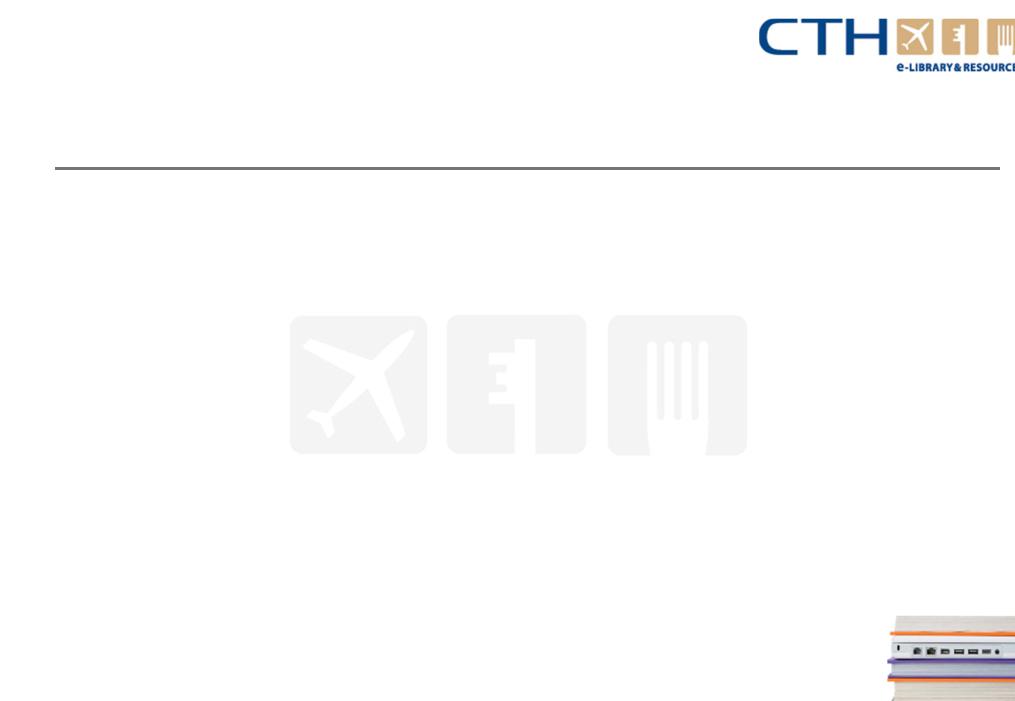
Chapter 4 – Check-out procedures
Payment procedures
3.5 Credit cards continued…
Most hotels nowadays use electronic machines linked by telecommunication links directly to a bank. Card details are collected from the magnetic strip on the back of the card when the card is 'swiped' through the machine.
●The cashier inserts or swipes the card, and enters the sales amount and the hotel's identification code.
●Details are transmitted to the bank's computer system for approval (e.g.. on the basis that the card has not expired, is not stolen, and has sufficient available credit). The machine signals that the transaction has been approved, and provides an authorisation code.
●The guest is generally requested to enter their Personal Identification Number (PIN) into the keypad, to confirm identity, and to accept the transaction.
●The machine produces a two-part voucher or receipt, which may (if PIN numbers are not used) require signature by the guest.
www.cthresources.com |
Page 245 |
|
www.cthawards.com |
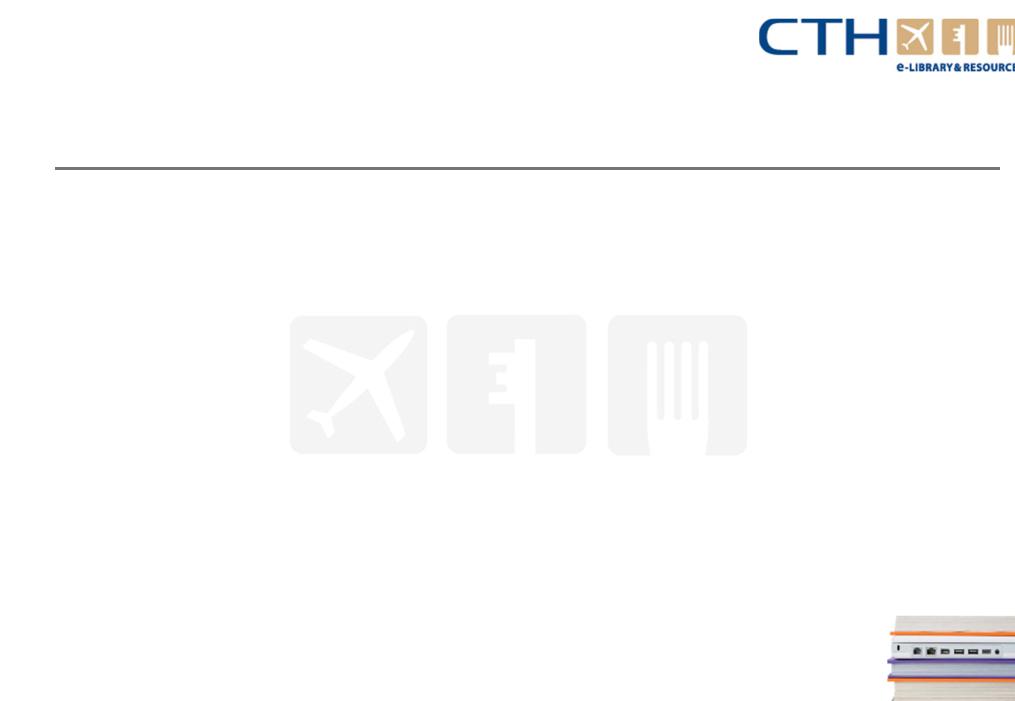
Chapter 4 – Check-out procedures
Payment procedures
3.5 Credit cards continued…
●The cashier verifies that the signature on the receipt matches that on the back of the card.
●The top copy of the receipt is given to the guest and the other copy is retained for the hotel's records.
Some small hotels may still use the manual system by which the cashier fills out the top copy of a multisheet sales voucher, and places it over the credit card in an 'imprinting' machine, which by sliding a weight across the card and voucher, makes an imprint of the raised credit card details on the voucher: the completed voucher is then handled in the same way as the computerised print-out version.
Credit card charges are paid into the bank with cash and cheques and credited to the hotel's account on the normal way (minus any commission charges).
www.cthresources.com |
Page 246 |
|
www.cthawards.com |
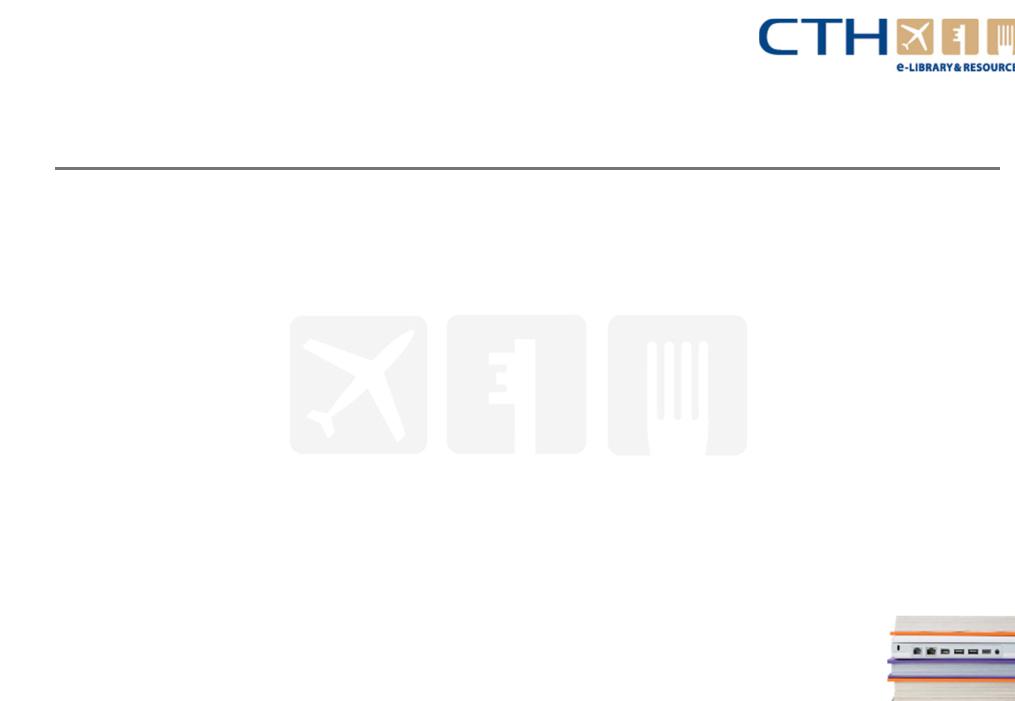
Chapter 4 – Check-out procedures
Payment procedures
3.5 Credit cards continued…
Advantages of accepting credit cards |
Disadvantages of accepting credit cards |
High security: less cash held on the premises, less |
Liquidity: take time to 'clear' before funds are |
risk of theft, payment is guaranteed |
available |
Customer service: convenient and safe for |
Worth: banks charge commission for use, plus |
travellers |
the hotel incurs costs of equipment, training etc |
Can be used to accept payment by phone, mail and |
Need to purchase or rent equipment, and |
online (e.g.. for deposits and pre-payments) |
develop contract with the credit card company |
Encourages higher spending on impulse buys |
Security: danger of credit card fraud |
www.cthresources.com |
Page 247 |
|
www.cthawards.com |
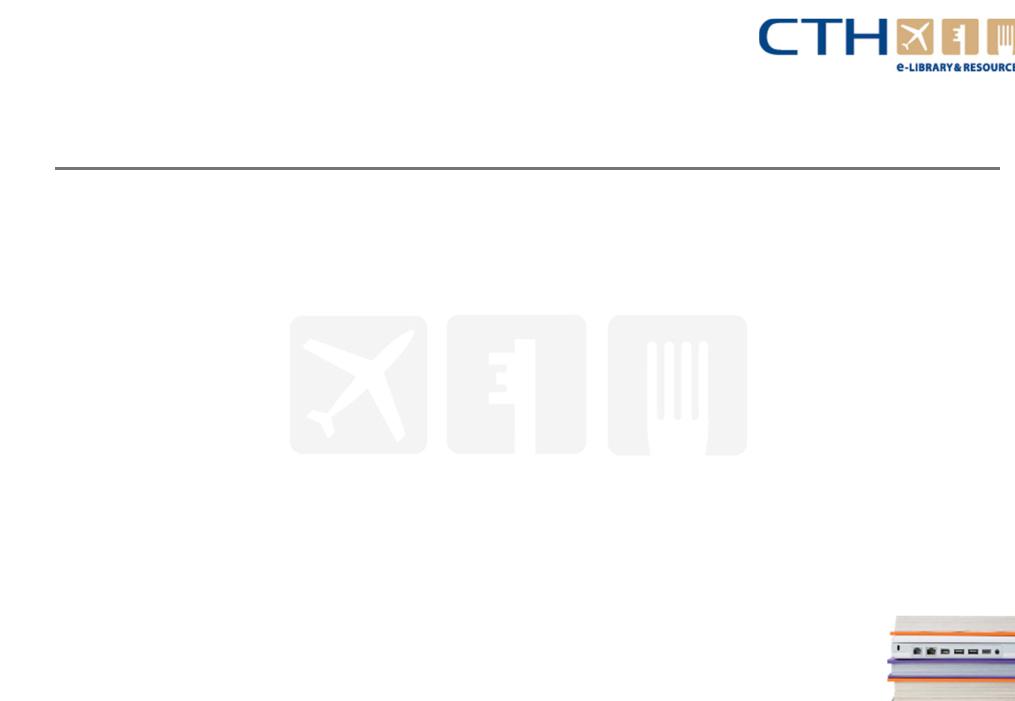
Chapter 4 – Check-out procedures
Payment procedures
3.6 Debit card
Many banks now provide their customers with a debit card, such as Switch or Delta. These cards look similar to credit cards, but their function is very different: payment is immediately transferred by Electronic Funds Transfer at Point of Sale (EFTPOS), directly from the guest's bank account to the hotel's bank account.
The procedure for accepting a debit card payment is the same as that for a credit card. The advantages and disadvantages of accepting them are much the same, too.
However, debit cards also make it possible to offer a cash-back service, whereby an extra amount is added to the total amount owing, for the customer to receive in cash. (e.g.. a guest may pay a hotel bill for £242.99 by debit card, and ask for £50 cash back. The cashier would enter the total amount as £292.99, and give the guest £50 in cash). Many guests may find this a useful way to obtain cash, rather than make a separate trip to a bank or ATM machine. (It does not cost the hotel anything extra to offer the service, because organisations accepting debit card payment pay a fixed commission to their bank or merchant services provider - nota percentage.)
www.cthresources.com |
Page 248 |
|
www.cthawards.com |
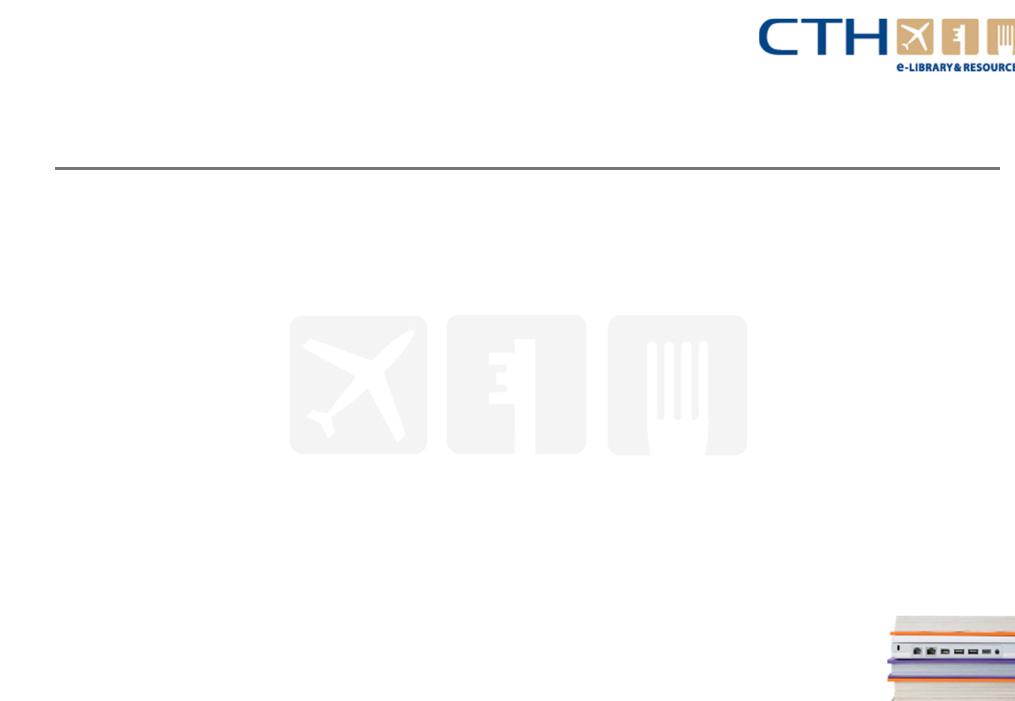
Chapter 4 – Check-out procedures
Payment procedures
3.7 Travel agents' vouchers
Some guests may have paid a travel agent for their accommodation and/or meals in advance (perhaps as part of a single invoice for multiple travel and accommodation arrangements). In such a case, the travel agent will usually issue some kind of voucher, showing the services booked and the amount paid.
●One copy will go to the hotel, to confirm the booking, and be held in the guest's reservation file.
●Another copy is given to the traveller to present to the hotel on check-in, confirming the guest's identity - and alerting the receptionist to any misunderstandings or changes.
●The receptionist should ensure that both (s)he and the guest are clear on what is covered by the voucher. An imprint or swipe of the guest's credit card may still be taken to cover any extra charges incurred during the stay, additional meals, optional services and sundries.
●The amount covered by the voucher is recorded in the 'ledger' column of the guest accounts (so that the 'payments' eventually balance with the amounts owed), and the amount transferred to its ledger account: these are amounts owing to the hotel, for which payment will be invoiced later.
www.cthresources.com |
Page 249 |
|
www.cthawards.com |
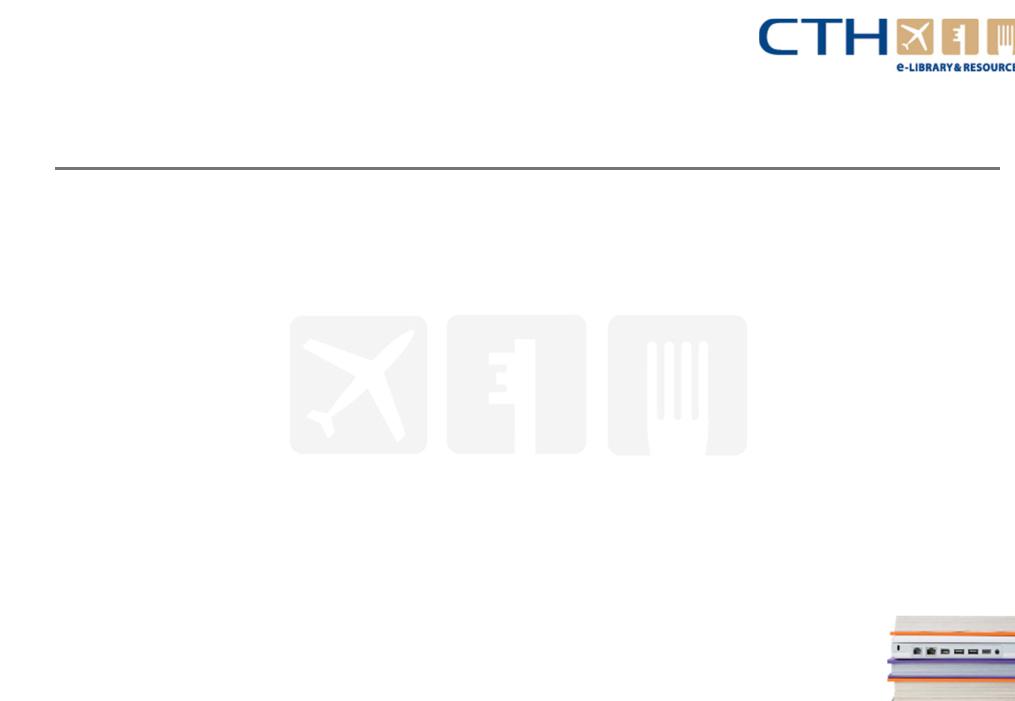
Chapter 4 – Check-out procedures
Payment procedures
3.7 Travel agents' vouchers continued
●At check-out, the guest's bill should show the amount pre-paid (quoting the voucher), plus any extra charges incurred. Even if there is a zero balance owing (i.e. there have been no extra charges), the guest should be asked to sign the bill, to show that they have taken up the service paid for, in case of subsequent query.
●Vouchers are collected and sent, usually monthly, to the issuing travel agents for subsequent payment (deducting the agent's commission on the booking).
Group tours are often paid for by group vouchers. The tour guide Or organiser agrees the total number of persons/nights of accommodation, meals and other services covered by the voucher, prior to departure, on the group's behalf. Individual 'extras' bills will still be presented and settled in the usual way.
www.cthresources.com |
Page 250 |
|
www.cthawards.com |
